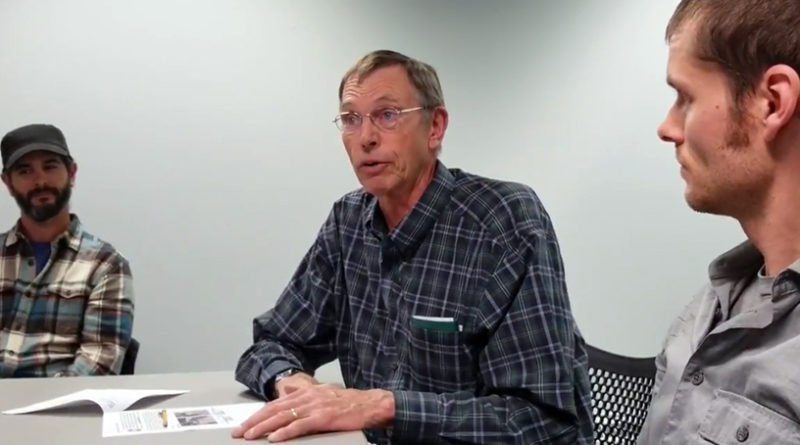Editorial: Medin shouldn’t be anywhere near the justice center issue
By Brandi Makuski
Those following local news will have recognized a recent uptick in coverage on a new county justice center.
Under the present iteration, plans for the facility would cost north of $200 million, spread over several years under phased construction. Two options for the project have been presented by the county’s contracted architect. Both provide a campus-style layout, but two different locations are offered: its current location near downtown, and a so-called “green site,” which is undefined, but presumably on the north side of County Hwy. HH near Crossroads Commons, still within city limits.
For those who haven’t been following the news, it’s important to understand that a new justice center building has been on the table for discussion for nearly two decades. The scope of the project has changed throughout the years, in part because new deficiencies in county space needs were discovered; in part because the Portage Co. Board of Supervisors has 25 members — and it’s hard to get 25 people to agree on much, especially when the majority do not regularly read local news.
See: The history of studies on a new jail/courthouse
On Feb. 20, County Board Supervisor Dave Medin, who represents the 4th District containing the existing location of the courthouse, was to provide what was referred to as a “presentation” to the Stevens Point City Council on the progress of the new county building.
While Mr. Medin did offer the Council (whose members would already have known had they read local news coverage, or watched the video presentation published by the county weeks earlier on this issue) a brief timeline and background on the project, he spent 16 minutes of that meeting providing purported input he’d received from residents who live around the courthouse and jail facilities, and his own thoughts on the issue.
To this reporter’s mind, Mr. Medin’s opinion, and any he passes along from unnamed sources, should be discredited on their face as fruit of a poisonous tree, as Mr. Medin has a giant conflict of interest in this area.
But first, a disclosure of my own: This reporter has known Mr. Medin for many years and went to school with his son. He is known to be a good person and a fervent representative for almost 40 years. I like him personally, which makes it that much harder to pen this editorial.
Too much opinion has been injected into the discussion on this issue. While that’s not surprising, Mr. Medin’s should not be among them.
City tax records show that Mr. Medin owns several rental properties in the immediate area of the courthouse building and jail—three on the 1500 block of Strongs Ave., and two on the 1500 block of Church St., some of which are multi-tenant properties, and at least some of which call among their tenants the local attorneys who work in the courthouse.
As Mr. Medin was sermonizing before the City Council about the importance of keeping county government offices near the downtown, he neglected to disclose his vested interest.
Under Wisconsin state law, local elected officials aren’t held to the same high standard of ethics as state electeds, but their ethical responsibilities are covered. According to the Wisconsin Ethics Commission, local officials should not be participating in any action “substantially affecting a matter in which the official, the official’s family, or associated organization has a substantial financial interest,” or “use office or position to produce a substantial benefit for an official, immediate family member, or associated organization.”
Mr. Medin acted as a spokesperson of the county on this issue before the City Council, which also violates the county’s code of conduct. Under the county’s policy, Board Supervisors cannot use their “office or the resources of the county for personal or political gain,” and are required to be “honest with all elected officials, county staff, county board supervisors, committees and boards, the public and others.”
One could argue Mr. Medin has thus far acted without malice, even if his conflict was a lie of omission. But another argument would point out that any elected official with 40 years of experience in public service should have a clear and present understanding of the legal ramifications of an undisclosed conflict of interest.
Even if that conflict was an honest oversight, or is merely a perception, he should recuse himself from any further involvement in this matter.


